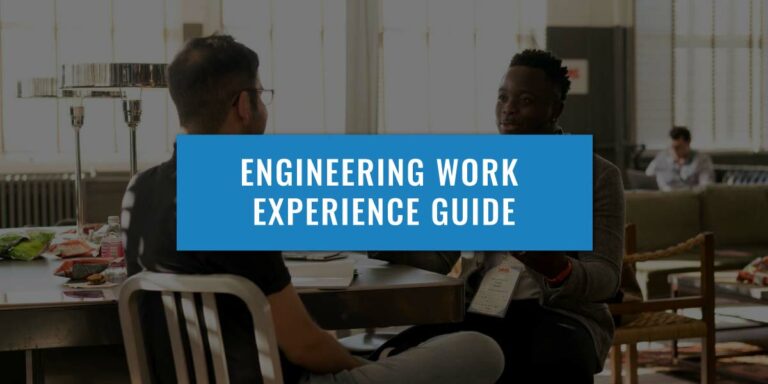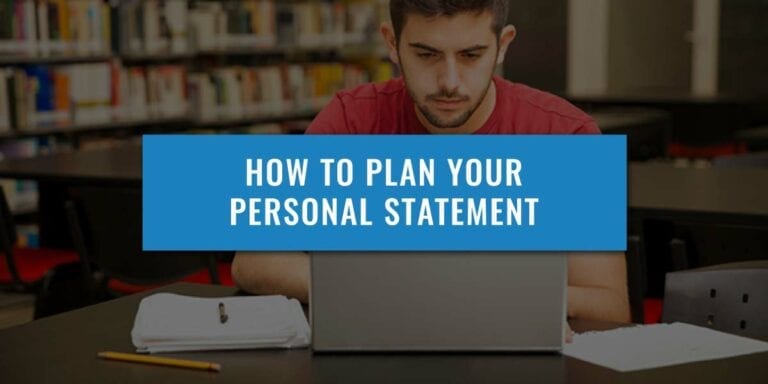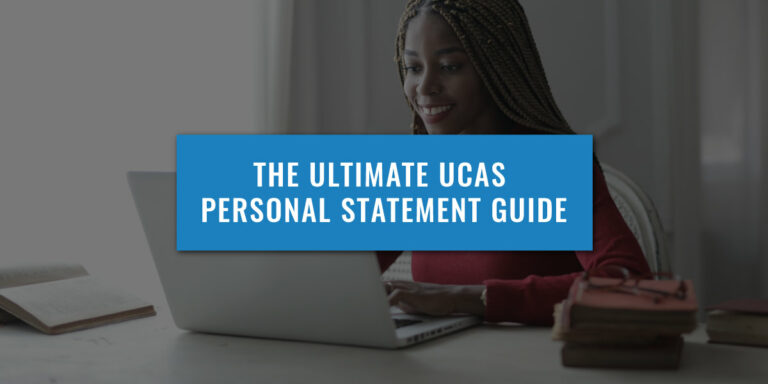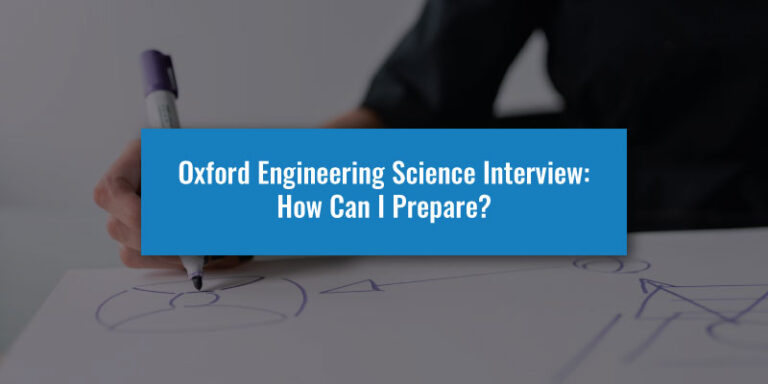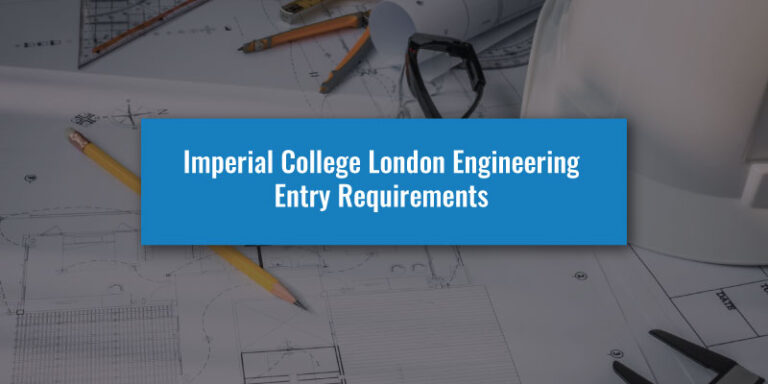Welcome to our popular Personal Statement series where we present a successful Personal Statement, and our Oxbridge Tutors provide their feedback on it.
Today, we are looking through an Engineering applicant’s Personal Statement that helped secure them a place at Cambridge. The Engineering course at Cambridge is unique in that it allows you to keep your options open whilst equipping you with all the analytical, design and computing skills that underpin modern Engineering, so let’s see how the applicant navigated around this to write a strong Personal Statement.
NEW PERSONAL STATEMENT FORMAT
As of 2025, UCAS Personal Statements will be presented with a new three-question format. Be aware that the Personal Statement featured in this guide was written in the previous free-form format. Despite this, the example will still be beneficial to read as the content included remains the same as what you should aim to write in your own work.
When reading this example, think about which question each paragraph answers. To learn more about the Personal Statement changes, read our dedicated guide to the new Personal Statements here.
Here’s a breakdown of the Personal Statement:
CHARACTERS
3,835
WORDS
621
SUCCESSFUL?
5/5
The universities this candidate applied to were the following:
CAMBRIDGE
OFFER
DURHAM
OFFER
WARWICK
OFFER
BRISTOL
OFFER
BATH
OFFER
Enrolling on our Oxbridge Engineering comprehensive Programme will give you access to Personal Statement redrafts.
With our Oxbridge Engineering Premium Programme, your tutor will give you regular actionable feedback with insider tips on how to improve and make your Personal Statement Oxbridge quality for the best chances of success.
Click the button below to learn how you can enrol and triple your chances of success.
Engineering Personal Statement
As a child being driven over London’s Albert Bridge I was intrigued by the sign saying somewhat cryptically ‘all ranks must break step’. Years later at school next to the Millennium Bridge I wanted to understand what had caused the bridge to be closed just after it was opened and discovered the connection. The same principle applies to both situations. I observed the side to side motion of pedestrians on the reopened bridge and understood how the engineers designing it had not accounted for these lateral forces that were acting at the bridge’s natural frequency, half that of the downward forces. The designers of the older and more rigid bridge had relied on written instructions to avoid the downward forces from soldiers walking in step synchronising with the bridge’s natural frequency. In 2001 the unforeseen problem was resolved using dampers and stiffening against lateral deflection. These bridges and their weaknesses opened my eyes to engineering.
I take pleasure in the challenge of solving problems that require more than just knowledge of how to use an equation and instead necessitate logical thought to work out how the problem can be approached. This includes applying maths to resolve a physical situation, an area which I enjoy very much. I have spent time following up differential equation (simple harmonic motion) and mechanics questions (projectiles) which are also relevant to engineering. My coursework presentation on Kevlar instigated an interest in materials, by understanding how its chemical properties, notably the aromatic bond, combined to make such a strong, flexible and low-density material with uses in many areas of engineering from bikes to bullet proof vests.
During work experience at Halcrow Yolles I witnessed engineering in action in Structural, Mechanical and Facade engineering. In the building services department I partook in a competition for an eco-friendly building in a hot climate by researching ways to achieve HVAC efficiency by designing structures which encourage the stack effect to improve ventilation and using window film to filter out UV rays, reducing the need for air conditioning. My findings were then discussed with my team. I relished my involvement and have since kept up my interest in environmental engineering, particularly geo-engineering, which is likely to become an important field as a last resort to counteract climate change. I would be interested to pursue this as a graduate. This placement introduced me to the analytical, mathematical and problem-solving skills involved in the processes of engineering which I feel well suited to.
Engineering at a top university will provide a challenge that I will enjoy confronting. I have a desire to gain an understanding of the principles that govern our world and how we manipulate them for our own uses as well as enjoying a balance between applied mathematics and the physical aspects of engineering. I will defer entry to university to give myself experience in both the mathematical and practical side of engineering by spending a year in industry. I am looking for a placement in the automotive industry with SEAT to enhance my Spanish. The experience will help me conceptualise the more theoretical aspects of engineering courses. I will allow time to get back up to speed with maths before university begins.
As a senior prefect who mentors Year 9s in maths and takes part in CCF and CSO I have developed my teamwork and organisational skills. Determination and focusing on my targets help me fulfill my objectives. I devised, organised, and encouraged others to train for and join in a 300 mile cycle ride from London to Paris, raising GBP 6000 for our school charity. I enjoy sports, playing football for school in my free time, but also ensure that I complete work efficiently and to a high standard.
For more inspiration, take a look through our other successful Personal Statement analysis articles:
Access "The Big Book Of Oxbridge Applications" For FREE
Are you considering applying to Oxford or Cambridge? The Big Book of Oxbridge Applications is your must-have resource. Whether you’re exploring colleges, preparing for admissions tests, mastering your UCAS application, crafting a standout Personal Statement, aiming for exam success, or preparing for your interviews, this free book will be invaluable to your preparation. Through over 350 pages, you will find:
- Over 40 admissions test practice questions
- 28 example Oxbridge Personal Statements
- Interviews with Oxbridge students and graduates
- Additional downloadable resources
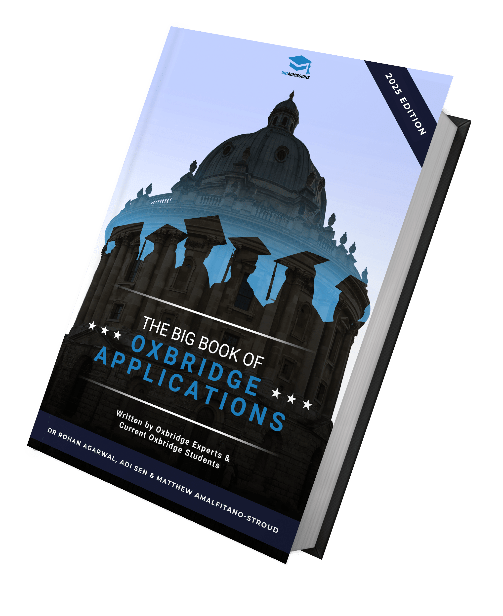
Access "The Oxbridge Application Vault"
- 300+ page ebook for Oxbridge Applicants
- 25 page ebook for Personal Statement
- 2h+ online course to succeed in any exam
- Online Oxbridge Success Calculator
- 12 page ebook about UniAdmissions
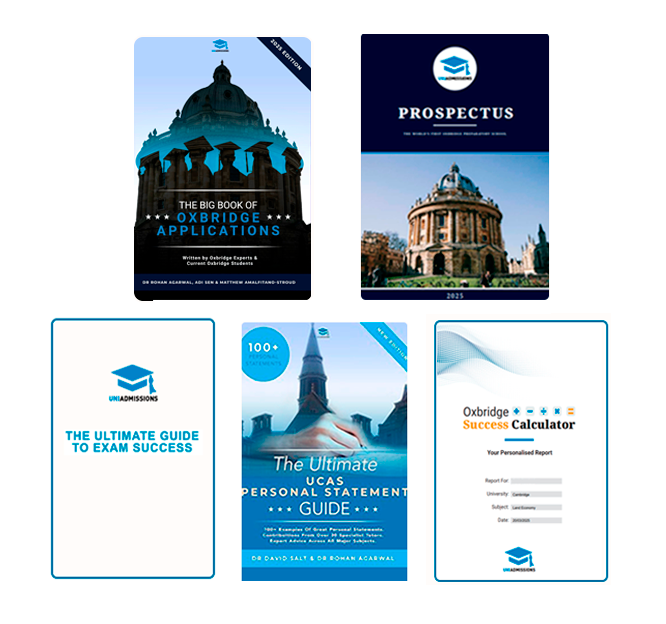
Download our Free Personal Statement Starter Guide
We have developed an 80-page E-Book filled with expert Personal Statement Advice. Inside, you’ll find guides on planning and writing your personal statement, as well as our full collection of 25+ Successful Oxbridge Personal Statements.
Good Points Of The Personal Statement
This is a very good statement. The statement is well-written, and structured. The student clearly explains their motivation for wanting to pursue engineering. The statement mentions and describes the student’s desire to pursue a number of different engineering disciplines, which is very good as this makes the statement relevant to applications for courses of a single engineering discipline, and to those for general engineering. The student’ use of their desire to study Engineering ‘at a top university’ is very good, as the student does not mention any one university specifically. This makes it clear that the student has taken their application to every university in their UCAS application seriously, something which is often not the case for students who are applying to Oxbridge.
Bad Points Of The Personal Statement
The student uses several acronyms which are not written out in full. This assumes that the reader will be familiar with such acronyms, which may not be the case. This reader has no idea what ‘CSO’ means, rendering its inclusion in the statement useless. There are commas missing in places, however this is a minor error.
UniAdmissions Overall Score:
★ ★ ★ ★ ☆
This is a very good statement, however the reader is left to work out what the meanings of several acronyms are for themselves. With a little more attention to the reader, this statement would be excellent.
This Personal Statement for Engineering is a great example of a statement done right. The candidate’s interest is clearly shown which is vital to Admissions Tutors.
Remember, at Cambridge, these Admissions Tutors are often the people who will be teaching you for the next few years so you need to appeal directly to them.
There are plenty more successful personal statements and expert guides on our Free Personal Statement Resources page.
Our expert tutors are on hand to help you craft the perfect Personal Statement for your Cambridge Engineering application.
With our Oxbridge Engineering Premium Programme we help you craft the perfect Personal Statement, produce and submit the best Written Work and teach you how to Interview effectively.
Discover our Oxbridge Engineering Premium Programme by clicking the button below to enrol and triple your chances of success.
